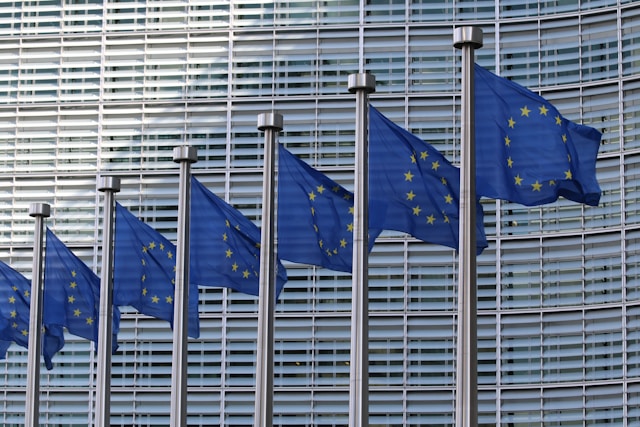The European Parliament today adopted a proposal calling to ban social media for teenagers under the age of 16 as lawmakers weigh up the effects of addictive technologies on young people’s mental health.
The resolution was passed by a majority of Members of the European Parliament, or MEPs. It’s not legally binding, and it’s still not clear how the EU would enforce the rule. But it’s a step closer to Europe moving in the same direction as Australia, which has already banned social media for children under 16. The ban would also include artificial intelligence chatbots, a technology currently being scrutinized as a possible danger to young people’s mental health.
If the ban in Europe goes through, U.S. Big Tech will be left with possibly millions of young users no longer using their services. French President Emmanuel Macron last week was critical about such tech, including the Chinese app TikTok — in particular how algorithms are set up to lure users into an endless scroll, creating what he said was a culture of bullying, harassment and extremism. He invoked the term “Wild West” – the long-held belief that U.S. tech companies have been allowed to operate in an environment where the bottom line comes before safety.
Macron added that Europe needs “to create a digital sovereignty that protects our children, our teenagers and our democratic space.” After France commissioned an agency to investigate the effects of social media on the young, the country is now leaning in the direction of banning social media for anyone under 18 and not allowing children under 13 to own a smartphone.
Christel Schaldemose, the Danish Social Democrat MEP who drafted the resolution, said in her annual State of the Union speech in September that the Commission will indeed consider following Australia’s lead.
“We are in the middle of an experiment, an experiment where American and Chinese tech giants have unlimited access to the attention of our children and young people for hours every single day almost entirely without oversight,” she told Parliament. “With this report, we finally draw a line. We are saying clearly to the platforms, ‘Your services are not designed for children, and the experiment ends here. ‘”
Critics point to Europe’s move to create a universal digital ID, which will include a Digital Identity Wallet. Acting as an age verification app, users aged 13 to 16 will require their parents’ permission to log into social media sites, and users will have to re-identify themselves every three months. Reclaim the Net called this “a vast digital checkpoint network where every online interaction could be tied back to a verified identity.”
Photo: Unsplash
Support our mission to keep content open and free by engaging with theCUBE community. Join theCUBE’s Alumni Trust Network, where technology leaders connect, share intelligence and create opportunities.
- 15M+ viewers of theCUBE videos, powering conversations across AI, cloud, cybersecurity and more
- 11.4k+ theCUBE alumni — Connect with more than 11,400 tech and business leaders shaping the future through a unique trusted-based network.
About News Media
Founded by tech visionaries John Furrier and Dave Vellante, News Media has built a dynamic ecosystem of industry-leading digital media brands that reach 15+ million elite tech professionals. Our new proprietary theCUBE AI Video Cloud is breaking ground in audience interaction, leveraging theCUBEai.com neural network to help technology companies make data-driven decisions and stay at the forefront of industry conversations.









